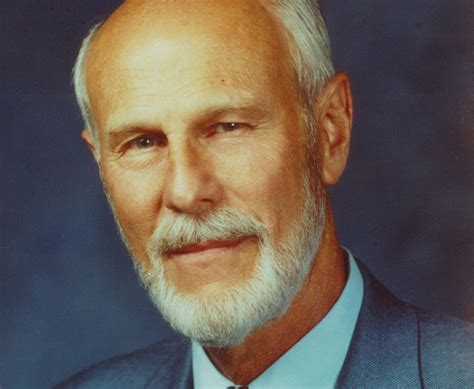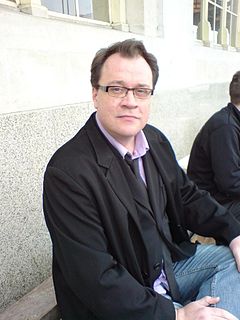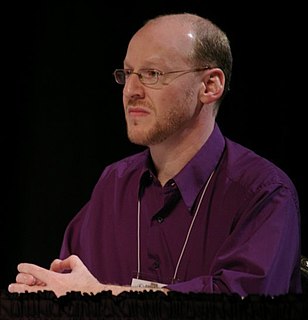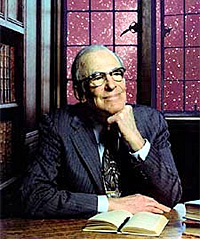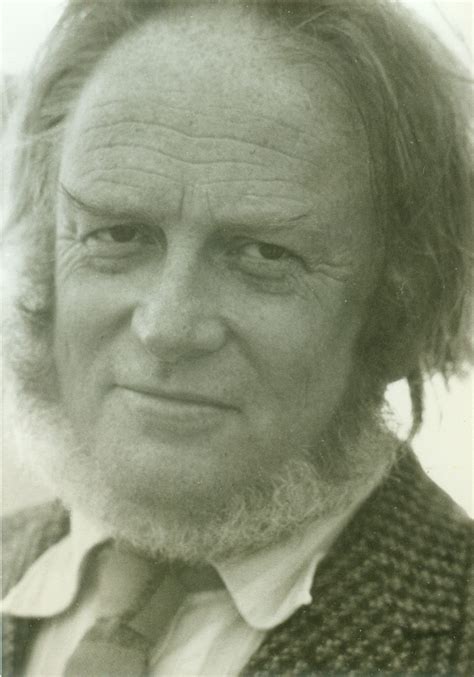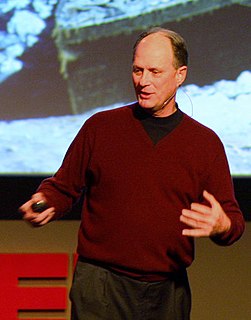Top 637 Planets Quotes & Sayings - Page 10
Explore popular Planets quotes.
Last updated on April 20, 2025.
Finally, if life happened by chance on this earth and evolved upward, then it could seemingly happen elsewhere in the universe. But if, as we believe, human life resulted from a purposeful act of God, and if sin is inevitable for such beings, and if the human soul is the prize for which Satan and God do battle, then it hardly makes sense to have this same process repeated on countless other planets throughout the cosmos.
If the rate of expansion one second after the Big Bang had been smaller by even one part in a hundred thousand million million, it would have recollapsed before it reached its present size. On the other hand, if it had been greater by a part in a million, the universe would have expanded too rapidly for stars and planets to form.
The Doctor: The Fourth Great and Bountiful Human Empire. And there it is: planet Earth at its height. Covered with megacities, five moons, population 96 billion. The hub of a galactic domain, stretching across a million planets, a million species. With mankind right in the middle. [Adam faints] The Doctor: [leans towards Rose, still looking out over the Earth] He's your boyfriend.
The nations, and the sects, of the Roman world, admitted with equal credulity, and similar abhorrence, the reality of that infernal art [witchcraft], which was able to control the eternal order of the planets, and the voluntary operations of the human mind. . . . They believed, with the wildest inconsistency, that this preternatural dominion of the air, of earth, and of hell, was exercised, from the vilest motives of malice or gain, by some wrinkled hags and itinerant sorcerers, who passed their obscure lives in penury and contempt.
Science fiction is a weird category, because it's the only area of fiction I can think of where the story is not of primary importance. Science fiction tends to be more about the science, or the invention of the fantasy world, or the political allegory. When I left science fiction, I said "They're more interested in planets, and I'm interested in people."
How have I been able to live so long outside Nature without identifying myself with it? Everything lives, moves, everything corresponds; the magnetic rays, emanating either from myself or from others, cross the limitless chain of created things unimpeded; it is a transparent network that covers the world, and its slender threads communicate themselves by degrees to the planets and stars. Captive now upon earth, I commune with the chorus of the stars who share in my joys and sorrows.
And new philosophy calls all in doubt, The element of fire is quite put out; The sun is lost, and the earth, and no man's wit Can well direct him where to look for it. And freely men confess that this world's spent, When in the planets, and the firmament They seek so many new; then see that this Is crumbled out again to his atomies. 'Tis all in pieces, all coherence gone; All just supply, and all relation: Prince, subject, Father, Son, are things forgot.
There is a point of view among astronomical researchers that is generally referred to as the Principle of Mediocrity. ... If the Sun and its retinue of worlds is only one system among many, then many other systems will be like ours: home to life. Indeed, to the extent that this is true, we should be prepared for the possibility that, even in the Milky Way galaxy, billions of planets may be carpeted by the dirty, nasty business known as life.
The fatal error of much science fiction has been to subscribe to an optimism based on the idea that revolution, or a new gimmick, or a bunch of strong men, or an invasion of aliens, or the conquest of other planets, or the annihilation of half the world--in short, pretty nearly anything but the facing up to the integral and irredeemable nature of mankind--can bring about utopian situations. It is the old error of the externalization of evil.
Let's travel at magnificent speeds around the universe
What could you say as the Earth gets further and further away
Planets are small as balls of clay
Astray into the Milky Way, world's outasight
Far as the eye can see, not even a satellite
Now stop and turn around and look
As you stare in the darkness, your knowledge is took!
So keep starin' soon you suddenly see a star
You better follow it, cause it's the R.
... the only other place comparable to these marvelous nether regions, must surely be naked space itself, out far beyond atmosphere, between the stars, where sunlight has no grip upon the dust and rubbish of planetary air, where the blackness of space, the shining planets, comets, suns, and stars must really be closely akin to the world of life as it appears to the eyes of an awed human being, in the open ocean, one half mile down.
When I was a kid, I was obsessed with different planets in the solar system, and I used to create, for every single planet, a different alien race with a certain kind of pet, a certain kind of house, a certain kind of water system, and everything. I would draw these pictures. I had hundreds of these pictures in a box.
Because the region of the Celestial World is of so great and such incredible magnitude as aforesaid, and since in what has gone before it was at least generally demonstrated that this comet continued within the limits of the space of the Aether, it seems that the complete explanation of the whole matter is not given unless we are also informed within narrower limits in what part of the widest Aether, and next to which orbs of the Planets [the comet] traces its path, and by what course it accomplishes this.
To get to Earth from the edge of the solar system, depending on the time of year and the position of the planets, you need to pass through at least Poland, Prussia, and Turkey, and you'd probably get stamps in your passport from a few of the other great powers. Then as you get closer to the world, you arrive at a point, in the continually shifting carriage space over the countries, where this complexity has to give way or fail. And so you arrive in the blissful lubrication of neutral orbital territory.
Always look up! Every time I step out-side, that's the first thing I do. Ask your-self, "what star is that?", grab a star chart and try to figure it out. That is basically how I started. Learn your planets and learn how to distinguish them from the stars. Study star charts even during the day and that night, go and see if you can find them. You may surprise yourself!
. . . for until that God who rules all the region of the sky . . . has freed you from the fetters of your body, you cannot gain admission here. Men were created with the understanding that they were to look after that sphere called Earth, which you see in the middle of the temple. Minds have been given to them out of the eternal fires you call fixed stars and planets, those spherical solids which, quickened with divine minds, journey through their circuits and orbits with amazing speed.
Nothing grows among its pinnacles; there is no shade except under great toadstools of sandstone whose bases have been eaten to the shape of wine glasses by the wind. Everything is flaking, cracking, disintegrating, wearing away in the long, inperceptible weather of time. The ash of ancient volcanic outbursts still sterilizes its soil, and its colors in that waste are the colors that flame in the lonely sunsets on dead planets.
One of the problems with science fiction, which is probably one of the reasons why I haven't done one for many, many years, is the fact that everything is used up. Every type of spacesuit is used up, every type of spacecraft is vaguely familiar, the corridors are similar, and the planets are similar.
I'm an atheist, and the concept of god for me is all part of what I call 'the last illusion.' The last illusion is someone knows what is going on. Nearly everyone has that illusion somewhere, and it manifests not only in the terms of the idea that there is a god but that it knows what's going on but that the planets know what's going on.
I am certain that I have been here as I am now a thousand times before, and I hope to return a thousand times... Man is a dialogue between nature and God. On other planets this dialogue will doubtless be of a higher and profounder character. What is lacking is Self-Knowledge. After that the rest will follow.
There's been a greater awareness among people, especially geeks, that the laws of physics don't allow that much wiggle room in terms of things like faster-than-light travel, time travel, sending people to other planets. It's harder than we were aware a few decades ago. I think there used to be this widespread imagination, this idea that we'd eventually just hop in a rocket and go to Mars.
We seem, these days, much more willing to recognize the perils before us than we were even a decade ago. The newly recognized dangers threaten all of us, equally. No one can say how it will turn out down here. But this is also, we may note, the first time that a species has become able to journey to the planets and the stars. Sailors on a becalmed sea, we sense a stirring of the breeze.
What a grin he had, what ferocious eyes, what a creature he was. He had dreamt himself an entire life and death. Ronan said, "I want to go back." "Then take it," said his father. "You know how now." And Ronan did. Because Niall Lynch was a forest fire, a rising sea, a car crash, a closing curtain, a blistering symphony, a catalyst with planets inside him. And he had given all of that to his middle son.
The wisdom of the Lord is infinite as are also His glory and His power. Ye heavens, sing His praises; sun, moon, and planets, glorify Him in your ineffable language! Praise Him, celestial harmonies, and all ye who can comprehend them! And thou, my soul, praise thy Creator! It is by Him and in Him that all exist.
Great is God our Lord, great is His power and there is no end to His wisdom. Praise Him you heavens, glorify Him, sun and moon and you planets. For out of Him and through Him, and in Him are all things..... We know, oh, so little. To Him be the praise, the honor and the glory from eternity to eternity.
We are living as if we had three planets' worth of resources to live with rather than just one. We need to cut by about two-thirds our ecological footprint. For that we need one planet farming as well as one planet living - one planet farming which minimises the impact on the environment of food production and consumption, and which maximises its contribution to renewal of the natural environment
I used to be a strong believer that we would eventually colonize the solar system the way it's been done in science fiction many, many times: bases on the moon, Mars colonized, move out to the outer planets, then we go to the next solar system and build a colony there. I don't know now - I'm not as convinced that's the way it's going to pan out.
Tell them you came, and saw, and looked into my eyes and saw the shadow of the guard receding. Thoughts in time and out of season, the hitchinker stood by the side of the road and levelled his thumb in the calm calculus of reason. [...] Why does my mind circle around you? Why do planets wonder what it would be like to be you? All your soft wild promises were words, birds, endlessly in flight.
Astrology ... makes vague predictions that can always be adapted after the fact to fit observations, as we'll see. Astrologers don't seek causes at all, for a good reason: There isn't any cause to astrology. If you look for some underlying reason, some connection between the stars and planets and our lives, you won't find any. For astrology to sell, buyers must not seek out the fundamental principles behind it, because if they do they'll see that there is none.
One of the truths I most deeply believe is that everything in life - everything - is energy. Within every one of us is the energy that makes the sun rise every day and keeps the planets aligned. It's there, already inside of you, waiting for you to know it. And when you tap in with that connection, that source, that miraculous energy, what I know for sure is that the universe rises up to meet you in unimaginable ways and help you create the life that you want.
Astronomy may be revolutionized more than any other field of science by observations from above the atmosphere. Study of the planets, the Sun, the stars, and the rarified matter in space should all be profoundly influenced by measurements from balloons, rockets, probes and satellites. ... In a new adventure of discovery no one can foretell what will be found, and it is probably safe to predict that the most important new discovery that will be made with flying telescopes will be quite unexpected and unforeseen.
That the machine of Heaven is not a hard and impervious body full of various real spheres, as up to now has been believed by most people. It will be proved that it extends everywhere, most fluid and simple, and nowhere presents obstacles as was formerly held, the circuits of the Planets being wholly free and without the labour and whirling round of any real spheres at all, being divinely governed under a given law.
[Coleridge] selected an instance of what was called the sublime, in DARWIN, who imagined the creation of the universe to have taken place in a moment, by the explosion of a mass of matter in the womb, or centre of space. In one and the same instant of time, suns and planets shot into systems in every direction, and filled and spangled the illimitable void! He asserted this to be an intolerable degradation -referring, as it were, all the beauty and harmony of nature to something like the bursting of a barrel of gunpowder! that spit its combustible materials into a pock-freckled creation!
As Attraction is stronger in small Magnets than in great ones in proportion to their Bulk, and Gravity is greater in the Surfaces of small Planets than in those of great ones in proportion to their bulk, and small Bodies are agitated much more by electric attraction than great ones; so the smallness of the Rays of Light may contribute very much to the power of the Agent by which they are refracted.
With a live music performance, the ideas of the richness and complexity of our inner and outer worlds - the emotional world and the external world, like the planets, the weather, and the universe are really washing over you. Your body feels the intention more than your mind analyzing intellectually too much. I've always tried to do this in my music, to make it very direct and bodily, so that it communicates itself immediately, even to someone without prior knowledge of it.
There are some who question the relevance of space activities in a developing nation. To us, there is no ambiguity of purpose. We do not have the fantasy of competing with the economically advanced nations in the exploration of the moon or the planets or manned space-flight. But we are convinced that if we are to play a meaningful role nationally, and in the community of nations, we must be second to none in the application of advanced technologies to the real problems of man and society.
Nine planets round the sun, only one does the sun embrace. Upon this watered one, so much we take for granted; So let us sleep outside tonight, lay down in our mother's arms, for here we can rest safely ... One sweet world around a star is spinning One sweet world And in her breath I'm swimming, and here we will rest in peace.
I wrote poetry from the time I could write. That was the only way I could begin to express who I was but the poems didn't make sense to my teachers. They didn't rhyme. They were about the wind sounds, the planets' motions, never about who I was or how I felt. I didn't think I felt anything. I was this mind more than a body or a heart. My mind photographing the stars, hearing the wind.
This moment, this being, is the thing. My life is all life in little. The moon, the planets, pass around my heart. The sun, now hidden by the round bulk of this earth, shines into me, and in me as well. The gods and the angels both good and bad are like the hairs of my own head, seemingly numberless, and growing from within. I people the cosmos from myself, it seems, yet what am I? A puff of dust, or a brief coughing spell, with emptiness and silence to follow.
We only recently figured out the origin of our own moon. And we have some idea of how the Sun and Earth formed, but that's only because modern telescopes empower us to see other stars and planets freshly hatched within gas clouds across the galaxy. As for the origin of life itself, the transition from inanimate molecules to what any of us would call life remains one of the great frontiers of biology.
Shadow boxes become poetic theater or settings wherein are metamorphosed the elements of a childhood pastime. The fragile, shimmering globules become the shimmering but more enduring planets—a connotation of moon and tides—the association of water less subtle, as when driftwood pieces make up a proscenium to set off the dazzling white of sea foam and billowy cloud crystallized in a pipe of fancy.
There are 15 constants- the gravitational constant, various constants about the strong and weak nuclear force, etc.- that have precise values. If any one of those constants was off by even one part in a million, or in some cases, by one part in a million million, the universe could not have actually come to the point where we see it. Matter would not have been able to coalesce, there would have been no galaxy, stars, planets or people
The fact that this chain of life existed [at volcanic vents on the seafloor] in the black cold of the deep sea and was utterly independent of sunlight - previously thought to be the font of all Earth's life - has startling ramifications. If life could flourish there, nurtured by a complex chemical process based on geothermal heat, then life could exist under similar conditions on planets far removed from the nurturing light of our parent star, the Sun.
The first night Stephen and I slept together, he whispered numbers into my ear: long, high numbers -- distances between planets, seconds in a life. He spoke as if they were poetry, and they became poetry. Later, when he fell asleep, I leaned over him and watched, trying to picture a mathematician's dreams. I concluded that Stephen must dream in abstract, cool designs like Mondrian paintings.
Henceforth the cosmos, once a swarm of blazing galaxies, each a swarm of stars, was composed wholly of star-corpses. These dark grains drifted through the dark void, like an infinitely tenuous smoke rising from an extinguished fire. Upon these motes, these gigantic worlds, the ultimate populations had created here and there with their artificial lighting a pale glow, invisible even from the innermost ring of lifeless planets.
I believe that this hairless embryo with the aching, oversize brain case and the opposable thumb, this animal barely up from the apes, will endure --will endure longer than his home planet, will spread out to the other planets, to the stars, and beyond, carrying with him his honesty, his insatiable curiosity, his unlimited courage --and his noble essential decency. This I believe with all my heart.
Now it’s either about technology that doesn’t work or about technology that’s used in bad ways. The anthology of the top twenty-five sci-fi stories in 1970 was, like, ‘Me and my friend the robot went for a walk on the moon,’ and in 2008 it was, like, ‘The galaxy is run by a fundamentalist Islamic confederacy, and there are people who are hunting planets and killing them for fun.’
This most beautiful system of the sun, planets and comets could only proceed from the counsel and dominion of an intelligent and powerful Being. And if the fixed stars are the centres of other like systems, these, being formed by the like wise counsel, must be all subject to the dominion of One; especially since the light of the fixed stars is of the same nature with the light of the sun.
Hence I feel no shame in asserting that this whole region engirdled by the moon, and the center of the earth, traverse this grand circle amid the rest of the planets in an annual revolution around the sun. Near the sun is the center of the universe. Moreover, since the sun remains stationary, whatever appears as a motion of the sun is really due rather to the motion of the earth.
Laplace considers astronomy a science of observation, because we can only observe the movements of the planets; we cannot reach them, indeed, to alter their course and to experiment with them. "On earth," said Laplace, "we make phenomena vary by experiments; in the sky, we carefully define all the phenomena presented to us by celestial motion." Certain physicians call medicine a science of observations, because they wrongly think that experimentation is inapplicable to it.
